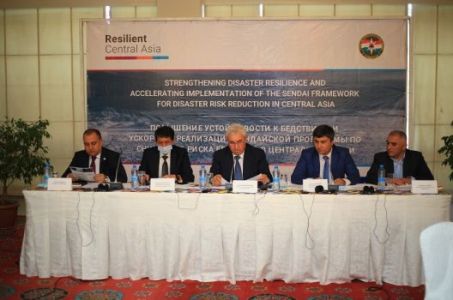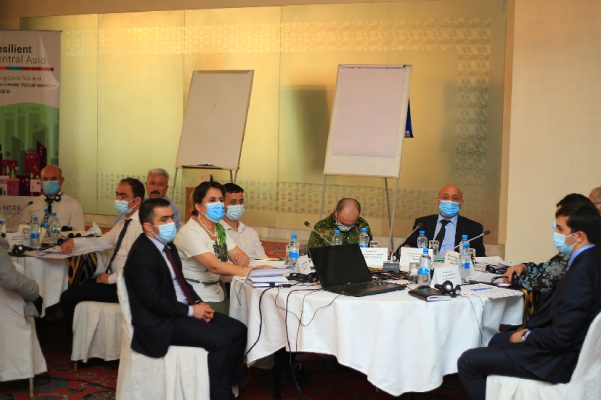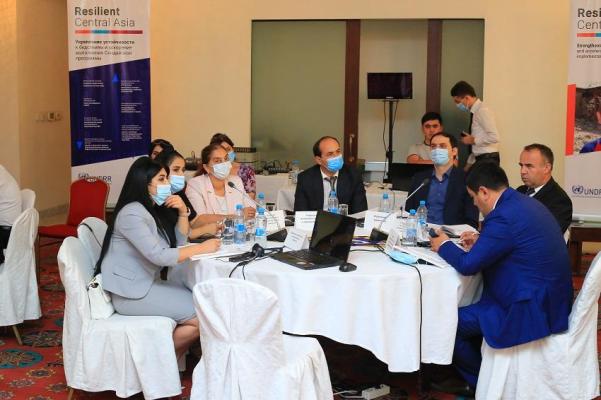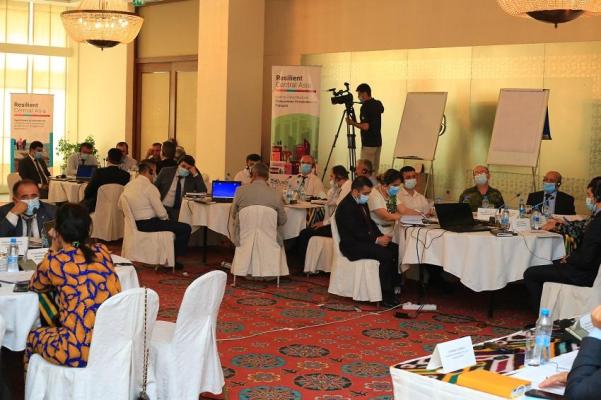Dushanbe Launches Development of the City Resilience Strategy and Action Plan for Disaster Risk Reduction
Read also

DUSHANBE, 12.08.2021 (NIAT Khovar) – On August 11-12, Dushanbe administration in collaboration with the UN Office for Disaster Risk Reduction Regional Office for Europe and Central Asia (UNDRR ROECA) conducted the first Self-Assessment Workshop on city’s resilience to disasters using “Public Health System Resilience Scorecard” and “Preliminary Disaster Resilience Scorecard”.
This work is part of the “Strengthening disaster resilience and accelerating implementation of Sendai Framework for Disaster Risk Reduction in Central Asia” initiative, implemented by UNDRR ROECA with funding from the European Union.
The workshop took place just as Dushanbe officially joined the Making Cities Resilient 2030 (MCR2030) initiative and expressed its commitment to disaster risk reduction and building resilience.
Being part of this initiative will allow Dushanbe to increase local resilience through advocacy, the exchange of knowledge and experiences, and the establishment of learning networks between cities to achieve the goals established in the 2030 Agenda for Sustainable Development and the Sendai Framework 2015-2030.
The Technical Working Group established by the Executive Body of State Power in Dushanbe and composed of over 40 representatives of the local and national government as well as risk analysis institutions, aims to develop by August 2022 the City Strategy and Action Plan for Disaster Risk Reduction for Dushanbe.
The Strategy and Action Plan will be based on multi-hazard approach, addressing amongst other pandemics and biological hazards. Experience from past epidemics and the current COVID-19 pandemic demonstrates the importance of coordination and cooperation between disaster managers, health workers and other sectors.














 “Sayri Sada” Route Introduces Foreign Visitors to Tajik Traditions and Culture
“Sayri Sada” Route Introduces Foreign Visitors to Tajik Traditions and Culture Free “Sayri Sada” Tourist Route to Be Held in Dushanbe on January 31
Free “Sayri Sada” Tourist Route to Be Held in Dushanbe on January 31 Dushanbe to Host Free “City Tour” on World Tourism Day
Dushanbe to Host Free “City Tour” on World Tourism Day DITE-2025: Dushanbe Emerging as a New International Tourism Hub
DITE-2025: Dushanbe Emerging as a New International Tourism Hub DITE-2025 Concludes with Strong International Participation and Key Industry Insights
DITE-2025 Concludes with Strong International Participation and Key Industry Insights Dushanbe to Host Annual Tourism Exhibition
Dushanbe to Host Annual Tourism Exhibition B2B Meetings and New Partnerships Take Center Stage at DITE-2025
B2B Meetings and New Partnerships Take Center Stage at DITE-2025 Over 200 Companies Participate in DITE-2025
Over 200 Companies Participate in DITE-2025 DITE-2025 Kicks Off at the Dushanbe Expo International Center
DITE-2025 Kicks Off at the Dushanbe Expo International Center Mayor of Dushanbe Rustami Emomali meets Mayor of Astana Zhenis Kassymbek
Mayor of Dushanbe Rustami Emomali meets Mayor of Astana Zhenis Kassymbek President of Kazakhstan Kassym-Jomart Tokayev awarded Rustam Emomali with the Order of Dostyk (Friendship) II degree
President of Kazakhstan Kassym-Jomart Tokayev awarded Rustam Emomali with the Order of Dostyk (Friendship) II degree Dushanbe Steps Up Preparations for Major International Tourism Exhibition
Dushanbe Steps Up Preparations for Major International Tourism Exhibition














